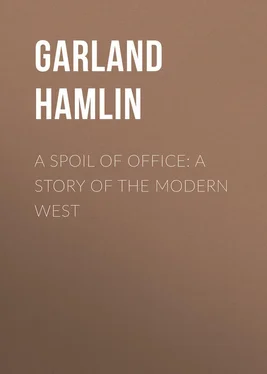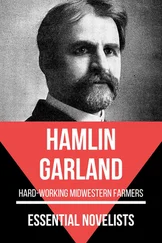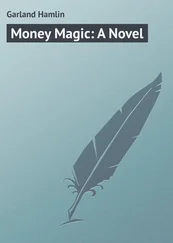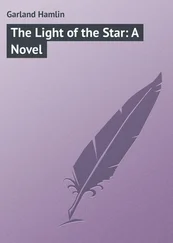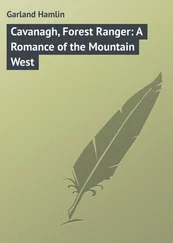Hamlin Garland - A Spoil of Office - A Story of the Modern West
Здесь есть возможность читать онлайн «Hamlin Garland - A Spoil of Office - A Story of the Modern West» — ознакомительный отрывок электронной книги совершенно бесплатно, а после прочтения отрывка купить полную версию. В некоторых случаях можно слушать аудио, скачать через торрент в формате fb2 и присутствует краткое содержание. Жанр: foreign_antique, foreign_prose, на английском языке. Описание произведения, (предисловие) а так же отзывы посетителей доступны на портале библиотеки ЛибКат.
- Название:A Spoil of Office: A Story of the Modern West
- Автор:
- Жанр:
- Год:неизвестен
- ISBN:нет данных
- Рейтинг книги:5 / 5. Голосов: 1
-
Избранное:Добавить в избранное
- Отзывы:
-
Ваша оценка:
- 100
- 1
- 2
- 3
- 4
- 5
A Spoil of Office: A Story of the Modern West: краткое содержание, описание и аннотация
Предлагаем к чтению аннотацию, описание, краткое содержание или предисловие (зависит от того, что написал сам автор книги «A Spoil of Office: A Story of the Modern West»). Если вы не нашли необходимую информацию о книге — напишите в комментариях, мы постараемся отыскать её.
A Spoil of Office: A Story of the Modern West — читать онлайн ознакомительный отрывок
Ниже представлен текст книги, разбитый по страницам. Система сохранения места последней прочитанной страницы, позволяет с удобством читать онлайн бесплатно книгу «A Spoil of Office: A Story of the Modern West», без необходимости каждый раз заново искать на чём Вы остановились. Поставьте закладку, и сможете в любой момент перейти на страницу, на которой закончили чтение.
Интервал:
Закладка:
As he went on with these stock phrases, he seemed to get hold of things which before had seemed out of his reach, scraps of speeches, newspaper comments, an astonishing flood of arguments, or at least what he took for arguments, came rushing into his mind. He reached out his hands and grasped and used phrases not his own as if they were bludgeons. He assaulted the opposition blindly, but with immense power.
He sat down amid loud applause, and young Mason arose to close the affirmative. He was sarcastic to the point of offence.
"He has said 'em all," he began, alluding to Bradley, "all the regulation arguments of Republican newspapers. And as for the leader of the opposition, he has got off the usual sneer at copperhead Democracy. This debate wouldn't have been complete without that remark from my esteemed leader of the opposition. Where argument fails, misrepresentations and sneers may do service with the injudicious. I trust the judges will remember that the argument has been on our side, and the innuendoes on the side of the opposition."
The verdict of the judges was in favor of the free traders, but the decision of the judges had less effect on Bradley than the surprising revelation of Radbourn's thought. There were phrases whose reach and significance he did not realize to the full, but their effect was not lost. He never forgot such things.
He was thinking how diametrically opposite Miss Wilbur's ideas were, when Radbourn came up, and said with a significant smile:
"Well, Talcott, you did get hold of all the regulation stock material. The Home Market idea is a great field for you. You think a city is of itself a good thing? You think a city means civilization. Well, I want to tell you, and maybe you won't believe me, cities mean vice, and crime, and poverty, and vast wealth for the few, and as for the Home Market idea, how would it do to let the farmer buy in the same market in which he sells? He sells in the world's market, but you'd force him to buy in a protected market."
Radbourn went off with a peculiar smile, which left Bradley uncertain whether he was laughing at him or not. He began from that moment to overhaul his stock of phrases, to see if they were really shopworn and worthless. He was growing marvellously, his whole nature was now awake. He thought, as he sawed wood in the back alleys of the town, and at night he toiled at his books. Those were great days. New powers were swiftly burgeoning.
Radbourn spoke to several of the politicians of the town about Bradley.
"There is a good deal in that man Talcott. Of course he's just beginning, but you'll hear from him on the stump. He is an orator that reaches people. He has the advantage of most of us; he's in dead earnest when he's advocating Republicanism."
Radbourn had times of saying things like this when his hearers didn't know what to make of him.
"It's just his way," some one usually said, and the rest sat in silence. They didn't enjoy it, but as Radbourn was not running for any office and was known to be a powerful thinker, they thought it best not to antagonize him.
"I wonder if he intends the law?" asked Judge Brown.
"I see what the Judge is driving at," Radbourn said quickly, "he thinks he can make a Democrat of him."
The group laughed. Democrats were in a hopeless minority, but the judge and Colonel Peavey never lost their proselyting zeal.
"The Judge is always on hand like a sore thumb," said Amos.
"The Judge'll be on the right side of the tariff one of these fine days, and have the laugh on the lot of yeh."
"What y' idee about that, Rad?"
"Good heavens! You don't expect to have protection always, do yeh?" was his only reply.
A day or two later he said to Bradley —
"Talcott, Brown wants to see you. He wants to make you a 'lawyer's hack'! Now I'd say to most men, don't do it, but if he offers to give you a place take it. It won't be worse than sawing wood thirty hours a week."
Following Radbourn's direction he passed up a narrow, incredibly grimy stairway, and knocked at a door at the end of a hall, whose only light came through the letter-slit in the door.
"Come in!" yelled a snarling voice.
Bradley entered timidly, for the voice was not at all cordial. The Judge, in his own den, was a different man from the Judge at Robie's grocery, and this day he was in bad humor. He sat with his heels on a revolving book-case, a law-book spread out on his legs, a long pipe in his hand.
If he uttered any words of greeting they were lost in the crescendo growl of a fat bull-dog lying in supple shining length at his feet.
"Down with yeh!" he snarled at the dog, who ceased his growling, but ran lightly and with ferocious suggestiveness toward Bradley and clung sniffing about his heels.
"Si' down!" the Judge said, indicating a chair with his pipe, which he held by the bowl. He made no other motion.
Bradley sat down. This greeting drove him back into his usual stubborn silence. He waited for developments, his eyes on the dog.
"Well, young man, what can I do for you?" asked the lawyer after a long silence, during which he laid down one book, and read a page in another.
"Nothin', I guess."
"Well, what the devil did yeh come in here for?" he inquired, with a glare of astonishment. "Want 'o buy a dog?"
Bradley was mad. "I came because Radbourn sent me. I c'n git out agin, mighty quick."
The Judge took down his heels. "Oh, you're that young orator. Why didn't yeh say so, you damned young Indian?" He now rose and walked over to the spittoon before going on. Bradley knew that this rough tone was entirely different from the first. It was a sort of affectionate blackguardism. "I heard you speak last Friday. All you need, young man, is a chance to swing y'r elbows. You want room according to y'r strength, but you never'd find it in the Republican party. It's struck with the palsy."
The judge had been talking this for two presidential campaigns and didn't take himself at all seriously.
"What are you going to do?"
"I don't know, yet."
"Do you want 'o study law?"
"I don't know, sir. Do you think I can be a lawyer?"
"If you're not too damned honest. If you want 'o try it, I'll make an arrangement with you, that will be better than sawing wood anyhow, this winter, and you can keep right on with your studies. We'll see what can be done next year."
The old man had taken a liking to Bradley on account of his oratory, and the possibilities of making him a Democratic leader had really taken possession of him. He had no son of his own, and he took a deep interest in young men of the stamp of Milton and Bradley.
After he reached home that night, Bradley extended his ambitions. He dared to hope that he might be a lawyer, and an orator, which meant also a successful politician to him. Politics to him, as to most western men, was the greatest concern of life, and the city of Washington the Mecca whose shining dome lured from afar. To go to Washington was equivalent to being born again. "A man can do anything if he thinks so and tries hard," he thought, following Radbourn's words.
He bustled about cheerily, cooking his fried potatoes and scraps of meat, and boiling his tea. The dim light made his large face softer and more thoughtful than it had appeared before, and his cheerfulness over his lonely meal typed forth the sublime audacity, profound ignorance, and pathetic faith with which such a man faces the world's millions and dares to hope for success.
VI.
BRADLEY ATTENDS A CONVENTION
On a dreamful September day of the following year, Bradley was helping Milton Jennings to dig potatoes. It was nearly time for his return to school and to Judge Brown's office, and the two young men were full of plans. Milton was intending to go back for another year, and Bradley intended to keep up with his studies if possible, and retain his place with Brown also.
Читать дальшеИнтервал:
Закладка:
Похожие книги на «A Spoil of Office: A Story of the Modern West»
Представляем Вашему вниманию похожие книги на «A Spoil of Office: A Story of the Modern West» списком для выбора. Мы отобрали схожую по названию и смыслу литературу в надежде предоставить читателям больше вариантов отыскать новые, интересные, ещё непрочитанные произведения.
Обсуждение, отзывы о книге «A Spoil of Office: A Story of the Modern West» и просто собственные мнения читателей. Оставьте ваши комментарии, напишите, что Вы думаете о произведении, его смысле или главных героях. Укажите что конкретно понравилось, а что нет, и почему Вы так считаете.
